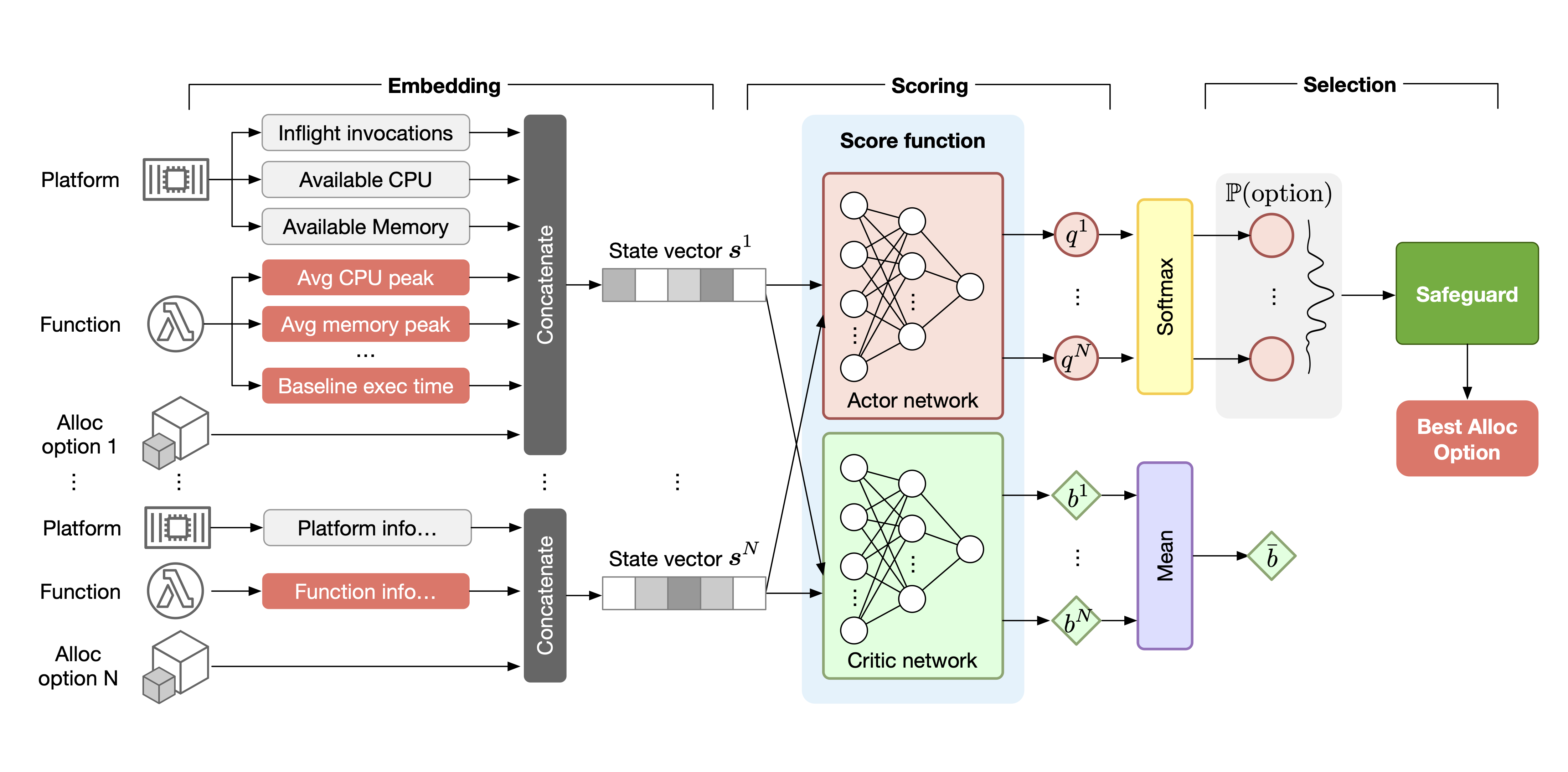Resource Harvesting in Serverless Computing
——Accepted by the ACM HPDC 2023, [PDF]
Abstract
Serverless computing has been favored by users and infrastructure providers from various industries, including online services and scientific computing. Users enjoy its auto-scaling and ease-of-management, and providers own more control to optimize their service. However, existing serverless platforms still require users to pre-define resource allocations for their functions, leading to frequent misconfiguration by inexperienced users in practice. Besides, functions’ varying input data further escalate the gap between their dynamic resource demands and static allocations, leaving functions either over-provisioned or under-provisioned. This paper presents Libra, a safe and timely resource harvesting framework for multi-node serverless clusters. Libra makes precise harvesting decisions to accelerate function invocations with harvested resources and jointly improve resource utilization by profiling dynamic resource demands and availability proactively. Experiments on OpenWhisk clusters with real-world workloads show that Libra reduces response latency by 39% and achieves 3× resource utilization compared to state-of-the-art solutions.

——Accepted by the ACM WebConf 2022, available at arXiv:2108.12717
Abstract
Serverless computing has become a new cloud computing paradigm that promises to deliver high cost-efficiency and simplified cloud deployment with automated resource scaling at a fine granularity. Users decouple a cloud application into chained functions and preset each serverless function’s memory and CPU demands at megabyte-level and core-level, respectively. Serverless platforms then automatically scale the number of functions to accommodate the workloads. However, the complexities of chained functions make it non-trivial to accurately determine the resource demands of each function for users, leading to either resource over-provision or under-provision for individual functions.
This paper presents FaaSRM, a new resource manager (RM) for serverless platforms that maximizes resource efficiency by dynamically harvesting idle resources from functions over-supplied to functions under-supplied. FaaSRM monitors each function’s resource utilization in real-time, detects over-provisioning and under-provisioning, and applies deep reinforcement learning to harvest idle resources safely using a safeguard mechanism and accelerate functions efficiently. We have implemented and deployed a FaaSRM prototype in a 13-node Apache OpenWhisk cluster. Experimental results on the OpenWhisk cluster show that FaaSRM reduces the execution time of 98% of function invocations by 35.81% compared to the baseline RMs by harvesting idle resources from 38.8% of the invocations and accelerating 39.2% of the invocations.

